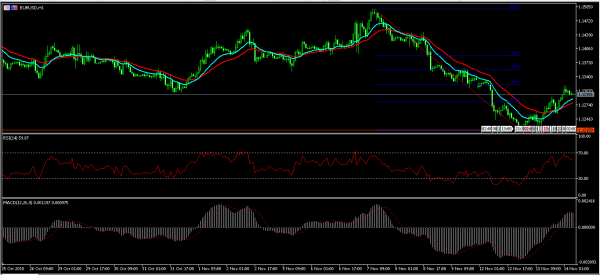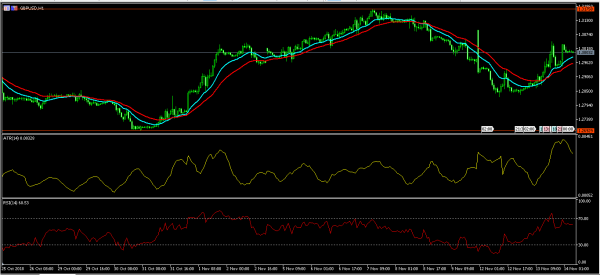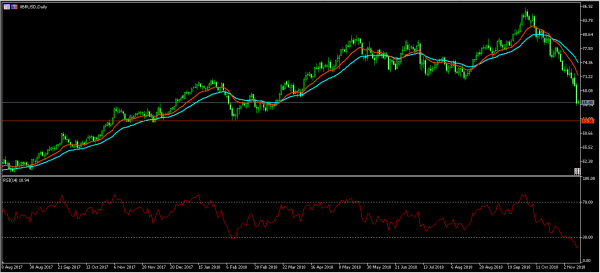Sterling rose after the United Kingdom hammered a deal with the European Union on Brexit. Prime Minister Theresa May now faces a crunch cabinet meeting later today during which she’ll try to win her colleagues’ support for the Brexit draft. Even before the legislators read the 400-page document, many of them said that they would not support the proposal. If the deal is rejected, it will subject the UK to a difficult scenario and raise the risk of a no-Brexit deal. Brexit news will be the main mover in the pound today even as the country releases important CPI numbers.
The yen continued to decline against the USD after Japan released important Q3 GDP numbers which showed that the economy contracted by minus 1.2% in the quarter. This was lower than traders were expecting and lower than the Q2 expansion of 3%. It was also the slowest pace since 2016. On a QoQ basis, the economy contracted by minus 0.3%. The GDP capital expenditure dropped by minus 0.2%, which was lower than the consensus estimate of 0.6% growth. The surprising contraction of the economy is likely a sign that the BOJ will hold rates steady for a long period.
China released mixed economic data today. The country’s retail sales rose by an annualized rate of 8.6%. This was lower than the consensus estimate of 9.2%. The unemployment rate remained unchanged at 4.9%. On the other hand, in October, industrial production rose by 5.9%, which was higher than the estimate of 5.8%. Fixed asset investments rose by 5.7%, which was higher than the estimate of 5.5%.
Crude oil had the sharpest decline in months yesterday. In the Asian session, the price continued to decline, reaching an intraday low of $64.82. In the past few weeks, the price has moved from a four-year high to the current bear market. The declines have erased hopes by the market that the price will reach $100 this year. The main reason for the decline is that while the world is flooded with crude oil, the demand has slowed.
EUR/USD
The EUR/USD pair rose in the Asian session to reach an intraday high of 1.1320. This was along the 38.2% Fibonacci Retracement level. The pair’s RSI is at 59 and heading down – an indication that the pair could see some declines today. This is confirmed by the MACD, which appears to be losing momentum. In the immediate short term, the pair is likely to test the 23.6% Fibonacci Retracement level of 1.1280. The biggest movers for the pair will be Brexit, EU employment numbers, and US inflation numbers.
GBP/USD
The GBP/USD pair rose to an intraday high of 1.3033. As the pair rose, so did the Average True Range (ATR) indicator, which is a measure of volatility. This is because there are concerns that the deal will not be accepted by May’s cabinet and parliament. The double EMA shows that the pair is likely to continue moving up, which is confirmed by the RSI. However, since today will be the most important day in terms of Brexit, the pair will likely be a bit volatile.
XBR/USD
Brent crude oil declined sharply to an intraday low of $64.70. This was a 25% drop from this year’s high of $86. The XBR/USD double EMAs on the daily chart show that the pair is likely to continue the downward momentum. The RSI has declined to the oversold level of 18, which is a sign of the strength of the decline. It is also a sign that the pair could recover when it reaches an important support level. This support will likely be 61 or 60. Today, traders will be watching US crude stocks data, which will be released by EIA.



